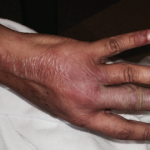A comparison study of the serious infection burden among patients with lupus found no major differences in patients treated with three separate immunosuppressive drug regimens. Given that serious infections are among the leading causes of hospitalizations and death in patients with systemic lupus erythematosus (SLE), researchers investigated whether the incident rates differed in patients who…






